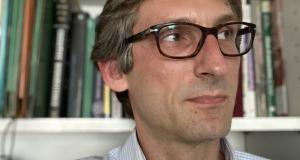
MATTEO CANDIDI
Email:
matteo.candidi@uniroma1.it
Structure:
Dipartimento di PSICOLOGIA
SSD:
PSIC-01/B
Notizie
Comunicazioni / Communications
2021-2022
Social Neuroscience
https://meet.google.com/ugm-eunv-cag
2021-2022
Experimental Methods in Social Neuroscience
https://meet.google.com/qtv-vuxx-wpe
Theses and interships
Theses/internships are available on the following topics/techniques:
- Behavioral, physiological and neural bases of interpersonal motor interactions (motion kinematics, EEG, brain stimulation);
- Interpersonal body and space representations (EEG, brain stimulation);
- Role of motor functions for perception and higher-order cognitive/affective functions;
- Social neuropsychology.
Who: undergraduate students in Psychology/Neuroscience.
Where: Department of Psychology, IRCCS Fondazione Santa Lucia, Rome.
Time frame: at least 9 months.
Note: no option for "remote" work currently, unless we are forced by law restrictions.
Orari di ricevimento
Su appuntamento via e-mail all'indirizzo matteo.candidi@uniroma1.it
Meeting hours are scheduled via email matteo.candidi@uniroma1.it
Insegnamenti
| Codice insegnamento | Insegnamento | Anno | Semestre | Lingua | Corso | Codice corso | Curriculum |
|---|---|---|---|---|---|---|---|
| AAF2386 | PROFESSIONALIZING INTERNSHIP | 1º | 2º | ITA | Cognitive neuroscience - Neuroscienze cognitive | 33574 | Curriculum unico |
| 10612241 | EXPERIMENTAL METHODS IN SOCIAL NEUROSCIENCE - EXPERIMENTAL METHODS IN SOCIAL NEUROSCIENCE I | 1º | 2º | ENG | Cognitive neuroscience - Neuroscienze cognitive | 33574 | Curriculum unico |
| AAF1750 | FURTHER LINGUISTIC KNOWLEDGE | 1º | 1º | ITA | Cognitive neuroscience - Neuroscienze cognitive | 33574 | Curriculum unico |
| AAF2386 | PROFESSIONALIZING INTERNSHIP | 2º | 2º | ITA | Cognitive neuroscience - Neuroscienze cognitive | 33574 | Curriculum unico |
| AAF2361 | ULTERIORI ATTIVITA' FORMATIVE PROFESSIONALIZZANTI - UAFP | 2º | 2º | ITA | Psicologia e Salute | 33570 | Curriculum unico |
| AAF2361 | ULTERIORI ATTIVITA' FORMATIVE PROFESSIONALIZZANTI - UAFP | 2º | 1º | ITA | Psicologia e Salute | 33570 | Curriculum unico |
| 1036138 | NEUROSCIENZE SOCIALI | 3º | 2º | ITA | Psicologia e processi sociali | 33569 | Psicologia e processi sociali (percorso formativo valido anche ai fini del rilascio del doppio titolo italo-colombiano) |
